-
•
•
33 responses
I enjoyed Alison’s post from a couple of weeks ago, Does Gender Matter?, but I’m a little confused how the pieces fit together. The post appears to accept the nonscriptural, uncanonized Proclamation at face value, stating: “Gender is part of who we are and who we have always been. It is important. It matters.” That makes it difficult to argue for reform of what is identified as a problem: “The church uses gender to delineate authority, callings, and roles.” However, there is a different way to see the issue. Read More
-
•
•
15 responses
I have to admit that I am not usually thrilled by the images in the Ensign. Read More
-
•
•
54 responses
Gospel Doctrine on Sunday featured the parable of the ten virgins, accompanied by this picture: Apparently it’s a well-known picture, but I’d never seen it before. The instructor read the picture’s accompanying interpretation. It’s too long for me to share in its fullness (which can be found here), but here are some of the bits that I found a little bit jarring in the context of a Sunday school lesson: “The third virgin represents the ordinances necessary on this earth to enter the kingdom… She is dressed in blue, trimmed with gold – blue and gold are the colors of… Read More
-
•
•
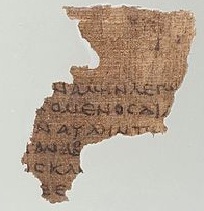
Remember: though these may be useful in helping a person to prepare a Sunday School lesson, they are intended primarily to help one study and prepare for taking part in Sunday School. That’s why you’ll find questions with no answers; they are study questions. John 16 Verses 1-3: In verse 1 Jesus tells the disciples that he taught them what he did in chapter 15 so that they would not be “offended.” A more literal translation might be “caused to stumble,”“scandalized.” In Matthew 26:31 Jesus tells the disciples that they will be offended or scandalized by him that night. What… Read More
-
•
•
14 responses
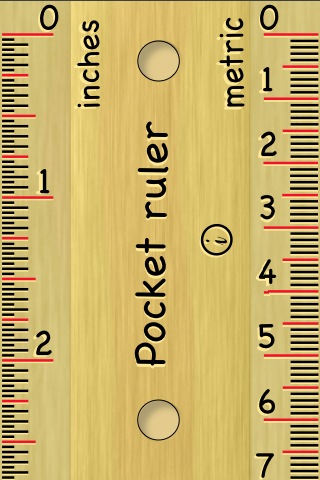
Yesterday’s priesthood lesson opened with what turned out to be a provocative question: How do you measure obedience? How do we know when we are being obedient?And, perhaps most difficult, how do we know that we aren’t fooling ourselves? Read More
-
•
•
4 responses
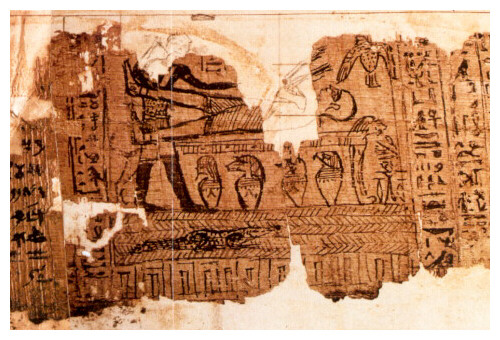
A Happy Father’s Day to all! My day’s been celestially filled with family, great meals, and rainbow drawings/notes from my children. And on top of it all I’ve had the rare opportunity to sit quietly in an idyllic spot and read The Book of Abraham – an appropriate text for Father’s Day if ever there was one. In reading and talking through some of the verses with my wife – who already seems to have the great knowledge and the greater knowledge that I, like Abraham, seek for – we spent some time on that conspicuous word that pops up… Read More
-
•
•
16 responses
This past Sunday found many of us discussing the parable of the talents. This parable is especially powerful to me because of what it teaches about God’s plan for us. God’s plan—at this stage—is not about a particular set of outcomes being credited to us. Instead, God wants us to join with Him in sculpting our will and internal resources toward ends He knows will lead us to realize our full potential. In other words, the Gospel is about our “becoming” through imperfect actions under God’s guidance. In the parable, the master praises the servants who acted to increase their… Read More
-
•
•
8 responses
Times & Seasons is excited to introduce Brad Strum as a guest blogger. Brad lives and works in the DC area as an economist, where he has been since earning a Ph.D. in economics at Princeton University. Before grad school, he served in the Russia, Rostov-na-Donu mission and attended Brigham Young University, earning undergraduate degrees in economics and mathematics. Going back even further, Brad grew up in a military family, living in a number of places around the U.S. When he isn’t working, Brad enjoys many activities, including tennis, biking, dancing, reading, discussion groups, and spending time with family and… Read More
-
•
•
50 responses
Once a year I attend a professional conference on juvenile law and practice. The keynote speaker at this year’s conference is Bruce D. Perry, a scholar and psychologist who studies the effect of trauma on brain development and who runs a clinical practice treating children and juveniles who are forced to deal with those difficult issues. Read More
-
•
•
8 responses

Last week Major League Baseball held its most important annual draft, indicating interest in more than 1,500 possible players. As far as I can tell, just two of them are Mormon, down from 6 last year. Read More
-
•
•
29 responses
I decided a couple weeks ago that I’m going to start attending the worship services of the various churches in my area, partially for self-education and partially for fun. Motivated by the vision of being inspired by new and unfamiliar practices, I hopped on Google and searched for “roseville churches”, then clicked on the map view. Roseville isn’t a huge cosmopolitan metropolis (it’s a suburb of Sacramento, with a population of about 120,000 people), but it’s large enough that I hoped to find a variety of religious groups. Of the first 10 search results, 8 are non-denominational Christian churches and… Read More
-
•
•
211 responses
The emphasis here is on for the YM, not to be modest. In fact, most of you would consider me to be ultra-conservative in the modesty department: Read More
-
•
•
20 responses

When I was on vacation a few years ago I picked up a local paper and found a number of articles about the problems that area was facing because of illegal immigration. Predictably there was crime committed by the illegal immigrants, and a lot of hate towards them. For an American nothing there was unusual–except that I was in South Africa. Read More
-
•
•
80 responses
Karl Giberson’s Saving Darwin: How to Be a Christian and Believe in Evolution (HarperOne, 2008) relates Giberson’s journey from fundamentalist Christian student to still-believing but no longer fundamentalist physicist. Chapter 5 of the book critiques the sources of Young Earth Creationism (YEC), primarily George McCready Price’s The New Geology, published in 1923, and Whitcomb and Morris’s The Genesis Flood, published in 1961. As Price’s book is also a source for LDS YEC beliefs — which for some bizarre reason still seem to guide Correlation in approving statements made in LDS publications — the chapter seems particularly helpful for Latter-day Saints… Read More
-
•
•
32 responses
As a missionary, I took pride in my familiarity with the scriptures. No matter the question, I could usually present an investigator with a scripturally backed answer. Being somewhat slow on the uptake, it probably took me a year or more to become conscious of the fact that most investigators didn’t ascribe the same level of authority to the scriptures that I did. I just took for granted that “proving a concept by the standard works” = “concern resolved!” But that’s a topic for a different post. This post is about the one scripture that did make a difference. I… Read More
-
•
•
19 responses
Some (Wednesday morning) articles of faith: 1. The gospel is terrifyingly simple: Give up! Read More
-
•
•
46 responses
At the end of a recent White House meeting with a Mormon focus group White House officials asked an illuminating question: Who are the LDS Community leaders that the White House should try to recognize? Read More
-
•
•
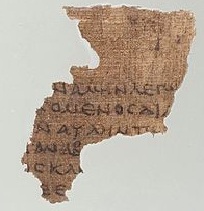
Getting caught up (as you can see). With this lesson we begin to read about the part of Christ’s life that is traditionally called “the Passion,” the time between the Last Supper and his death on the cross. The word “passion” and the word “passive” are related terms. Why is this part of Jesus’ life called the Passion? The longest part of each of the New Testament gospels is the part describing the Passion. As Latter-day Saints, our tendency is to focus on the resurrection rather than the Passion. Why do you think the gospels give so much attention to… Read More
-
•
•
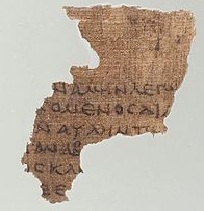
Verses 1-13: The Parable of the Ten Virgins How does the parable relate to that given in Matthew 24:45-51? We know little about marriage ceremonies in Palestine during Jesus’ day. Indeed, we can assume that the customs varied from one place to another in Palestine, making it even more difficult to recover them. Most of what we say about such things is really a description of customs 200 years or more later. Perhaps those later customs reflect what happened in Jesus’ day, but we cannot know that they did, and the tremendous social upheaval resulting from the destruction of the… Read More
-
•
•
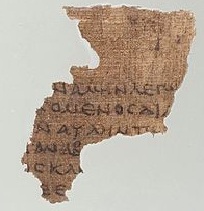
It is sometimes helpful to have the Joseph Smith revision (JST) and the King James translation side-by-side, so I have put both versions of chapter 24 together in a PDF file for those who would like to use it. Traditional Christianity finds this chapter ambiguous: in some ways it seems to refer to the destruction of Jerusalem that occurred in 70 A.D.; in some ways it seems to refer to the Second Coming. It seems to me that Joseph Smith makes it more clear which passages refer to the destruction of Jerusalem and which refer to the Second Coming. You… Read More
-
•
•
107 responses

Which revelations we cherish and consider central, and which one’s we sideline and (sometimes literally) forget is surely a result of a complex host of variables. Local culture and politics are obviously a huge deal. The Word of Wisdom is a revelation that is particularly interesting Read More
-
•
•
19 responses
I am guessing many readers have already stumbled across a controversial opinion piece posted at Patheos last week, Warren Cole Smith’s “A Vote for Romney Is a Vote for the LDS Church.” Smith is the author of the book A Lover’s Quarrel With the Evangelical Church, so it is clear where he is coming from. In fairness to Patheos, it should be noted that the article was part of an online symposium on faith and social conservatism offering a variety of viewpoints, including “Yes, Christians Can Vote for Mormons,” “In Defense of Mormons,” and Nate Oman’s “The LDS Church Walks… Read More
-
•
•
44 responses
Kent’s post on community responsibility brings to mind the question of whether and how a community can repent. Do the first principles and ordinance of the gospel apply to the church as a whole? The church exemplifies faith through its teachings, and I can see the entire church organization as reflective of the ordinances of baptism and confirmation. But what about repentance? I’m not aware of any instances where the church as an institution has worked through a repentance-like process (acknowledging an institutional error, accepting responsibility for it, apologizing, and then working toward restitution), but that doesn’t mean such examples… Read More
-
•
•
37 responses

Yesterday in priesthood we discussed President Monson’s October 2010 Conference address on the Three Rs of Choice. One of the three Rs is ‘Responsibility’ — which led, of course, to discussing personal responsibility. In the discussion it occurred to me that personal responsibility is very closely connected to community responsibility. Read More
-
•
•
26 responses
Consider this: Read More
-
•
•
33 responses
I recently breezed through a short book by Herman Wouk (author of the Pulitzer Prize-winning novel The Caine Mutiny) titled The Language God Talks: On Science and Religion (Little, Brown and Co., 2010). The book has the virtues of being short, entertaining, and informative as it recounts the author’s quest to relate his deep religious and cultural attachment to Judaism to his equally firm attachment to a scientific worldview. That’s the sort of quest many people in the 21st century are engaged in at one time or another. Read More
-
•
•
64 responses
Is church Correlation the new United Order? I remember a conference talk from years ago (by Pres. Packer, if I recall correctly, though I haven’t been able to find the actual talk to confirm it.) The speaker talked about how his local church unit had a wonderful and unique youth program — something about performance or public speaking, I think. It was managed by great leaders and the results with the students were remarkable. They were engaged, enjoying themselves, and learning new skills. However, the call came down from higher authorities to shut down the local program and replace it… Read More
-
•
•
286 responses

Gender is an essential characteristic of individual premortal, mortal, and eternal identity and purpose. ~ The Family: A Proclamation to the World Gender is part of who we are and who we have always been. It is important. It matters. The church uses gender to delineate authority, callings, and roles: By divine design, fathers are to preside over their families in love and righteousness and are responsible to provide the necessities of life and protection for their families. Mothers are primarily responsible for the nurture of their children. ~ The Family: A Proclamation to the World Last night my third daughter… Read More
-
•
•
61 responses
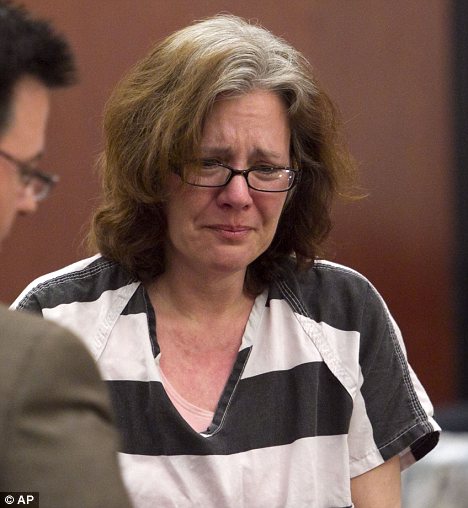
Last week the Pinal Arizona County Attorney decided not to charge two LDS Bishops with failing to report the sexual abuse of a minor in the case of LDS Church member Susan Brock, who is now serving a 13-year prison sentence for the crime. While I tend to agree with the county attorney’s position on the bishops, I have to ask the question, who should have reported the crime and when? Read More
-
•
•
17 responses

Even though most Americans are thousands of miles from the nearest palace, fortress, or castle ruin, the European Middle Ages continue to play an outsized role in our imaginations (see: Disneyland, Hogwarts, Helm’s Deep). Read More
